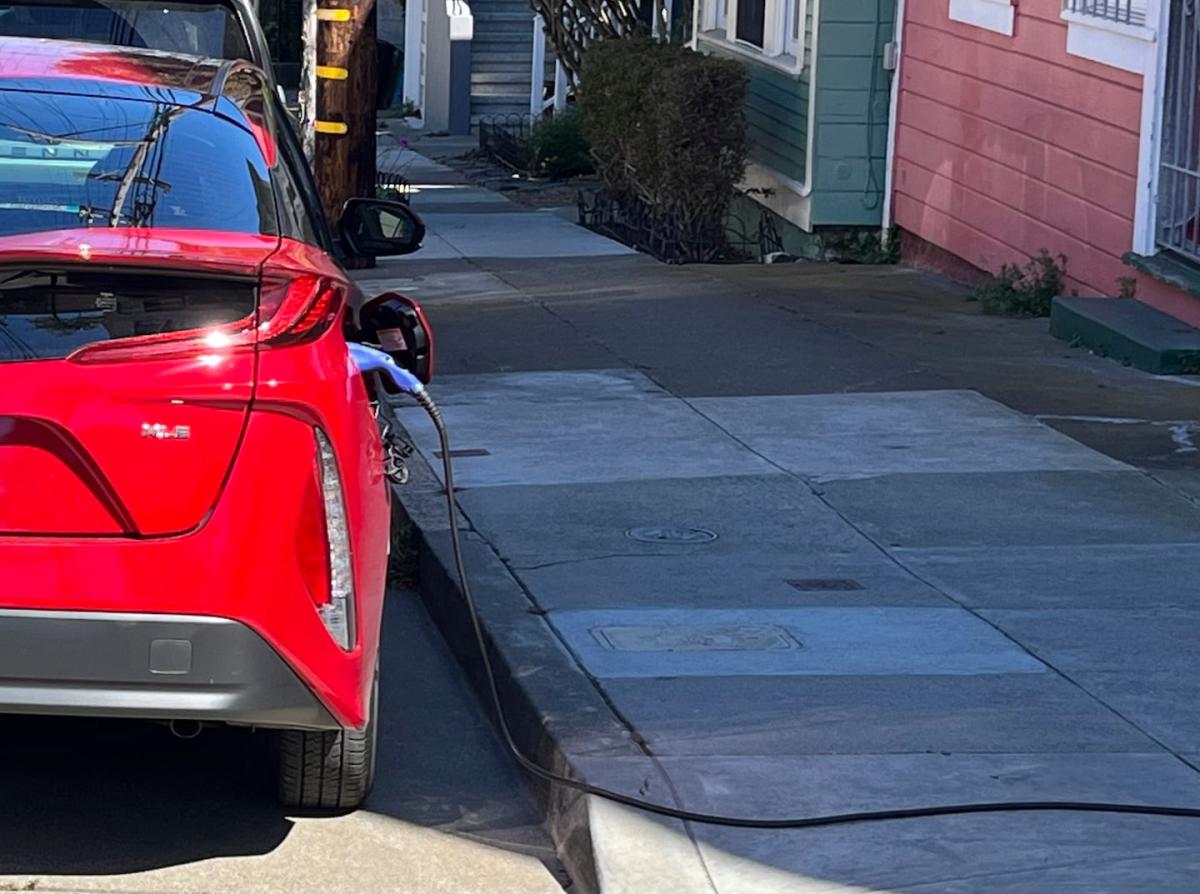If you are one of the 1.4 million Americans who bought an electric car last year, odds are that you live in (and own) a single-family home with a garage. According to one study, homeowners are three times more likely than renters to own an electric vehicle; another analysis of California EV drivers found that 80 percent live in single-family, detached homes.
There’s a reason: Electric cars are most convenient when drivers can charge them overnight - either on a standard outlet or using faster, “Level 2” home charging. “The pivot is definitely among single-family homeowners,” said Ingrid Malmgren, policy director at the EV advocacy group Plug In America. “If you don’t have access to a home charger, it makes a huge difference.”
But there are options for those living in apartment buildings or without a garage. Here’s how you can still go electric if you don’t live in a single-family home.



A couple chargers in a central spot, usable only by tenants, as an amenity like you’re describing, is likely viable with a small increase in all the rents, but that’s likely only viable for a decade or two.
As EVs becomes the norm (and I’m assuming they will), it will become less and less viable. From a very simple economic perspective, you’d essentially be adding the fuel costs of a steadiy increasing portion of tenants to the monthly rent, and there isn’t any sort of commercial venture anywhere that’s simply going to accept that kind of a decrease in revenue.
It’s all good if it’s a few tenants in a large complex, but as it scales up, the increase in utility costs (and specific to apartments, the costs of damages) is eventually going to drive it into “pay to play” per individual.
The amenity spots wouldnt be all that likely to be unreasonable in terms of aggressive profit seeking, but once it goes to individual chargers per tenant, all bets are off. It’ll go from a feature to attract new tenants at the landlords expense, to being an individual expense, and an opportunity to “small additional fee” some profits…